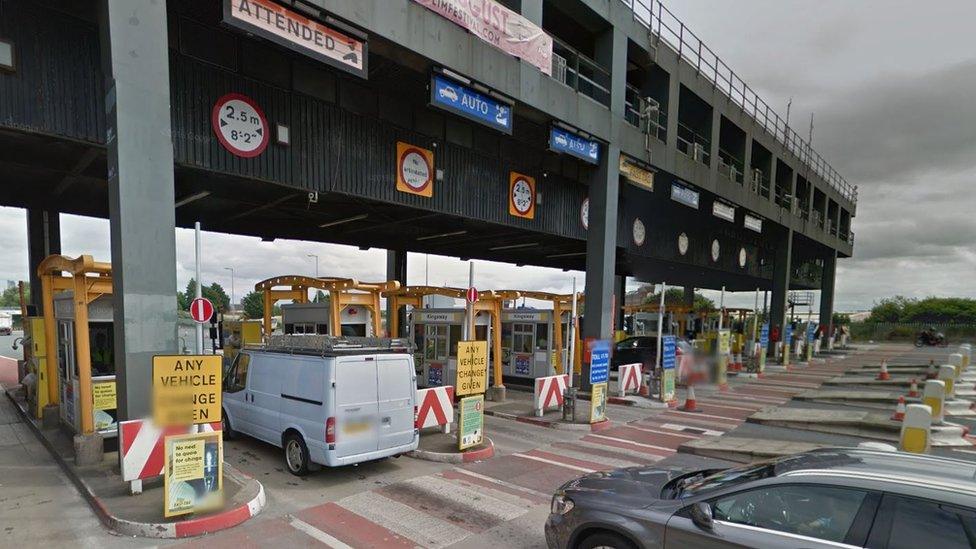Mersey Tunnel tolls to rise for first time in five years
- Published

The Queensway and Kingsway tunnels connect Liverpool and Wirral
Drivers using the two Mersey tunnels are set to pay 20p more from April in the first price rise in five years.
The Liverpool City Region Combined Authority said the hike was necessary amid budget pressures caused by the coronavirus pandemic.
Metropolitan Mayor Steve Rotheram said he had to "balance the books", with annual running costs rising over £1m.
Cars currently pay £1.80 per tunnel journey with lorries and other larger vehicles paying £3.60.
Mr Rotheram said the Queensway and Kingsway tunnels were "a critical part of our region's infrastructure and require significant, year-round maintenance".
He continued: "Given the financial pressures the pandemic has forced on us - and the moral duty we have to tackle the climate emergency - we have taken the decision this year to raise Mersey Tunnel tolls to help us balance the books and continue develop a London-style transport system that offers people a reliable, affordable alternative to the car."
The authority is expected to approve the planned rise later this month.
There will be a discount for people who live in the Liverpool City Region and use the Fast Tag or T-Flow prepayment systems.
The authority said the hike would help to cover a drop in income caused by the fall in traffic levels during the pandemic.
Tolls were suspended for key workers for two months in the first lockdown in 2020.
The Queensway and Kingsway tunnels are more than 80 and 50 years old respectively.
A spokeswoman for the Road Haulage Association criticised the rise at a time when high fuel prices were already affecting costs.
She said: "The prospect of an additional 20 pence per journey may not seem very much to the average shopper but it can represent the difference between make or break for the thousands of operators, big and small, that use this key route."
Keith Davies, owner of Cheshire-based catering equipment company KID Catering, said: "When the Birkenhead Tunnel was opened in the 1930s people were told it would be free after 40 years, which would have been in the early 70s."
Mr Davies, whose grandfather worked on the original excavation of the first tunnel, added: "Even the Wallasey Tunnel, which opened in the 70s, should be free by now.
"My company makes at least eight journeys each way every day and the rise is going to impact us."

Why not follow BBC North West on Facebook, external, Twitter, external and Instagram, external? You can also send story ideas to northwest.newsonline@bbc.co.uk
Related topics
- Published14 May 2020

- Published27 March 2020
